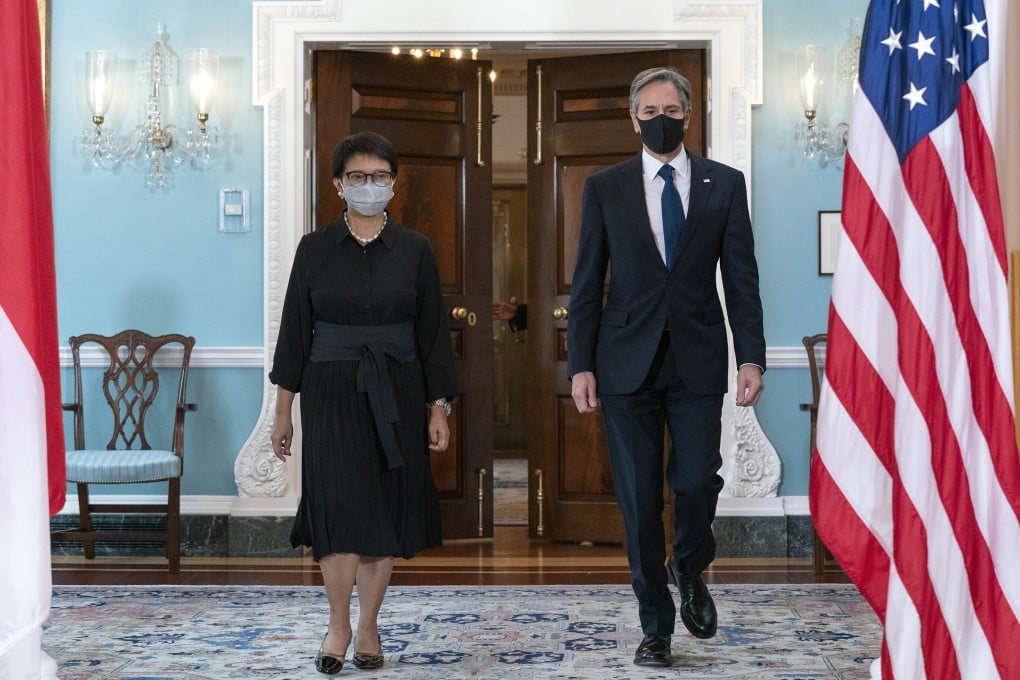Advertisement
Does the US and Indonesia’s resumed strategic dialogue really herald a new era of bilateral relations?
- A meeting between high-level officials looks to have resuscitated the strategic partnership that was agreed on in 2015, only to be largely abandoned under Trump
- But perceived snubs by Biden administration officials visiting the region and the need to balance ties with China mean Jakarta is wary of becoming too close to Washington
Reading Time:5 minutes
Why you can trust SCMP
1

When Indonesia’s foreign minister Retno Marsudi met her American counterpart Antony Blinken in Washington last month, she remarked that Jakarta had entered a “new era of bilateral relations” with the United States.
This indication of closer ties comes after Retno and Blinken launched a “strategic dialogue” between their countries that resuscitates the US-Indonesia strategic partnership that was agreed on in 2015, only to be largely abandoned during the Trump administration.
Since then, China has boosted its bilateral relationship with Indonesia, with both sides establishing a “platform for closer dialogue” in June to cooperate on five fronts, including the Belt and Road Initiative – Beijing’s ambitious infrastructure-building plan to boost global connectivity. Trade between Indonesia and China has grown and so have personal bonds between their political elite, which analysts say is the key to strong bilateral relations.
Advertisement
“The announcement of a strategic dialogue marks the revitalisation of US engagement with Southeast Asia in the post-Trump era, and a greater willingness by the Biden administration to re-engage with Southeast Asian states,” said Dr Greta Nabbs-Keller, senior specialist in defence research at Australia’s University of Queensland.
“However, it is significant that the new strategic dialogue and partnership which underpins it extends beyond security concerns to economic, health, climate change, education, energy, infrastructure, and cyber cooperation.”
Advertisement
The new US-Indonesia strategic dialogue kicked off during the largest ever Garuda Shield joint military exercises, which this year involved more than 4,500 personnel from both countries. The US has also donated 8 million vaccine doses and provided more than US$65 million in Covid-19-related assistance to the Southeast Asian nation, which in July was battered by a Delta-driven second wave.
Advertisement
Select Voice
Select Speed
1.00x